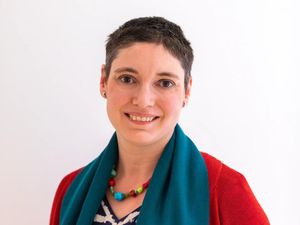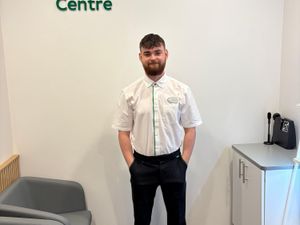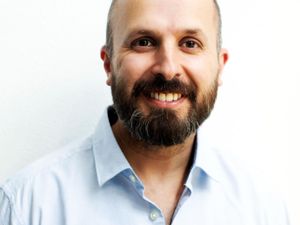Help banish dementia disease that took my father
Watching her father’s battle with the “cruellest of diseases” inspired Sue Boex to join the fight to find a cure for dementia.
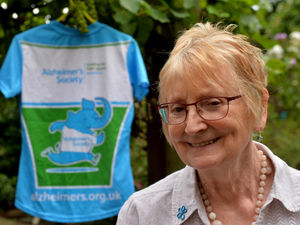
She is part of an army of volunteers helping to shape vital research into the cause, prevention and treatment of the progressive condition.
The retired NHS office manager joined the Alzheimer’s Society’s Research Network in 2002 after her father, Philip Green, was diagnosed with frontotemporal dementia, aged 72, in 1998.
“It was so obvious that dad had dementia,” recalls Sue,72.
“He worked until he was 70 and he was a businessman. He was always very good at mental arithmetic. But he kept forgetting his passwords on his computer and he forgot his way into Stourbridge, where he had lived for many years, and got lost.
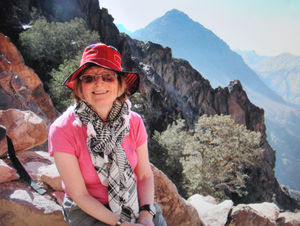
“After dad’s diagnosis, my mom, Edna, looked after him at their home but he got progressively worse. Dad would get up late in the night and wander off. He would leave the cooker on and he would put the watering can on the stove, so it was very dangerous for him and also for my mom. We had no choice but to move him into a home for the last years of his life.
“I’ve been passionate about and interested in dementia research ever since my dad was diagnosed. My dad was given a drug that was a well-known treatment for dementia at the time of his diagnosis, but the side effects led to him having a tremor and it really upset me.
“I wanted to know more about the research being done to cure and treat dementia and dementia wasn’t really spoken about at the time,” she says.
During a charity trek in Machu Picchu in Peru in aid of the Alzheimer’s Society, she found out about the Research Network and was keen to get involved.
It consists of people living with dementia, carers and former carers, who help ensure that the charity funds the best quality and most relevant research.
It’s estimated that 850,000 people in the UK have a form of dementia and this figure is expected to rise to two million by 2051.
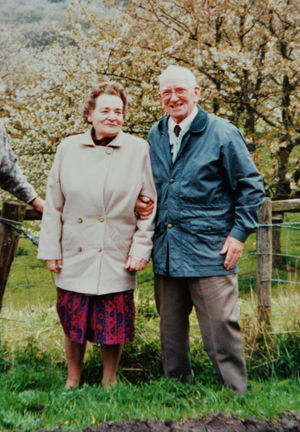
The Network’s ‘experts by experience’ support the charity to invest in meaningful research by reviewing funding applications, as well as monitoring and supporting projects.
“I get to read the research applications for the grants from the charity and I’m on the biomedical panel as that was my interest area. We get the research papers sent to us twice a year and we have about a month to read through them and decide the ones we think deserve funding.
“Then I join the panel with other Research Network volunteers and we look into the applications in more detail and present the ones we like to other panel members.
“I also get to attend interviews and join focus groups and I’ve been along to the University of Birmingham, Aston University, University College London, and I’ve even seen a brain being dissected. I feel so supported by Alzheimer’s Society and the research team is incredible. Some of the research that is going on and being funded is absolutely amazing and it’s a great feeling knowing that you are hopefully helping to find a cure for this cruellest of diseases,” explains Sue, whose father died in 2006.
More than 300 people from across the UK with experience of dementia make up the Network, which celebrated its 20th anniversary this month.
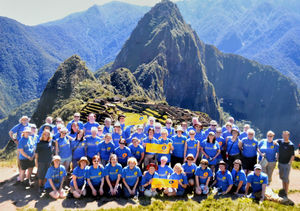
Jeremy Hughes, chief executive officer at Alzheimer’s Society, said: “Our Research Network volunteers have worked tirelessly for two decades to ensure the knowledge and experiences of people affected by dementia are at the heart of the research agenda.
“On behalf of everyone at Alzheimer’s Society we’d like to thank them for all their dedication and passion over the last 20 years – dementia research would not have made the progress it has today without them.
“Research will beat dementia, but we need more funding to find a cure. However, it’s not all about a cure – we also need to research cause, care and prevention. We owe it to the 850,000 people in the UK currently living with dementia to understand the condition better, so that they can live better.
“Our Research Network volunteers are at the forefront of making sure the £150 million we invest in dementia research over the next decade will have the biggest impact.”
Anyone living with dementia or who has experience of caring for a family member with dementia can apply to join the Network.
Volunteers do not need to have an academic or research background and the role can be undertaken from home, or even shared between two people.
For details more information and to sign up to the Network, visit alz heimers.org.uk/researchnetwork



